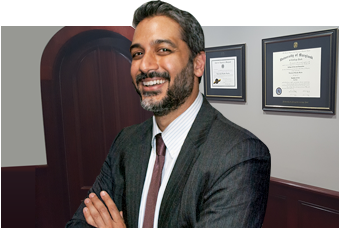Prescription Errors Are Medical Malpractice Too

An estimated five billion prescriptions are filled annually in the United States. This means that pharmacies serve a very important role in our healthcare system. The average U.S. pharmacist fills thousands of prescriptions, but their responsibility goes well beyond just counting pills. With more and more prescriptions being filled than ever before, there are also more medication errors taking place. That’s why it is important to understand what types of errors may happen the next time you visit your local pharmacy.
Common Medication Errors
Unfortunately, medication errors and mistakes are often unavoidable simply because there are so many ways for them to happen. The most common errors include, but are not limited to, the following:
- Giving the wrong medicine
- Giving the incorrect quantity of medication
- Giving the wrong dosage
- Giving an expired medication
- Typing the incorrect instructions
- Giving a patient another person’s prescription
- Not catching an obvious error by the doctor
Many of the errors that occur are the result of an overly complex system. In some cases, there are as many as 20 steps when filling one prescription. Unfortunately, it isn’t just the doctor or pharmacist that can be responsible for making a mistake. While a pharmacist is ultimately responsible for the prescription, the technicians working at the pharmacy play a critical role in dispensing medications.
Duties of Pharmacies
Pharmacies, just like physicians and other healthcare providers, have a duty to take care of their patients. These legal duties go beyond dispensing the correct number and type of pills in a prescription. The legal responsibilities of a pharmacist vary by state, and a few still continue to follow the old view that pharmacists are only obligated to accurately follow the instructions that a physician writes on a prescription. This often means that a pharmacist can only have a lawsuit filed against them if they incorrectly fill a prescription.
Many states, however, have adopted new laws that make a pharmacist’s liabilities much broader. Under these new responsibilities, a pharmacists duties expand beyond accurately filling a prescription and may include evaluating the safety and efficacy of a prescription when taking into account the patient’s medical history, warning patients of potential side effects of the medication, cross checking the patient’s other medications for adverse reactions, and consulting with patients about their medications.
What Can Pharmacists Get Sued For?
Pharmacists and pharmacies are considered healthcare practitioners and can be sued for medical malpractice just like a physician or hospital. Pharmacists are often sued for the breach of duty they owe to their patients, and the lawsuits tend to fall into one of the following categories:
- Drug Interactions – Some prescription medications can interact with other prescriptions when they are taken at the same time. Pharmacists and doctors are aware of these interactions and pharmacists are responsible for helping patients avoid these potentially harmful interactions.
- Dispensing an Incorrect Medication – When a pharmacist fills a prescription with the wrong drug it can result in a variety of dangerous situations. The error may be dispensing the wrong medication or wrong dosage.
Contact an Experienced Attorney Today
If you have been injured by a prescription medication, you may be entitled to compensation. The La Plata and Waldorf personal injury attorneys at The Law Office of Hammad S. Matin, P.A., can advise you of your legal options and ensure your rights are protected. Contact us today to schedule a consultation.
Resource:
psnet.ahrq.gov/primers/primer/23/medication-errors
https://www.matinlaw.com/prepare-now-for-holiday-road-trips/

